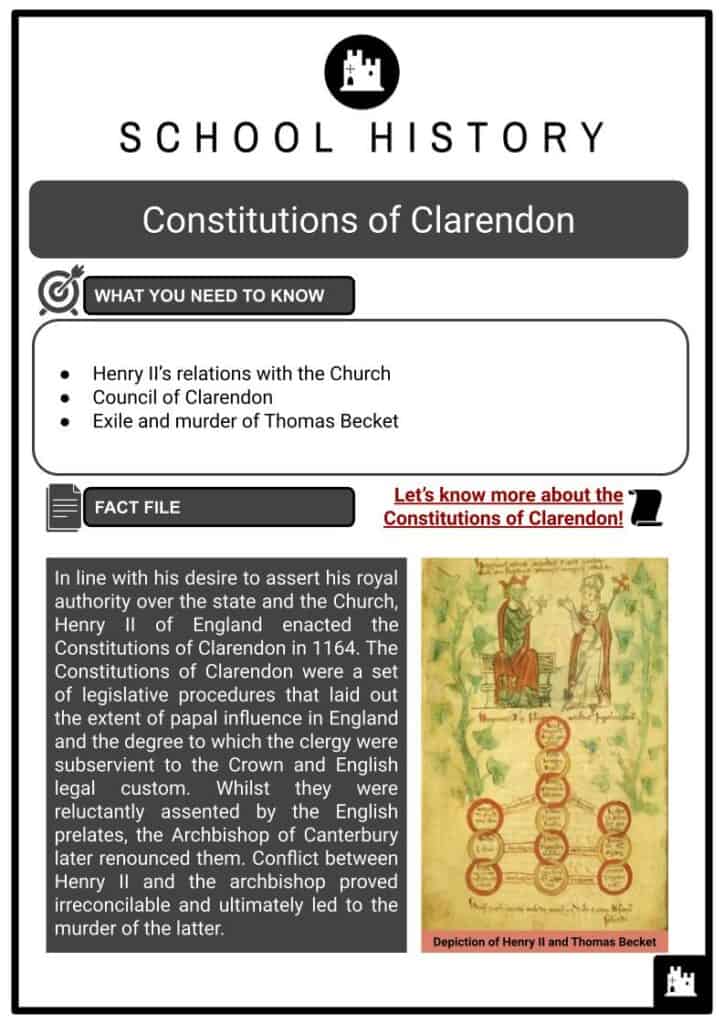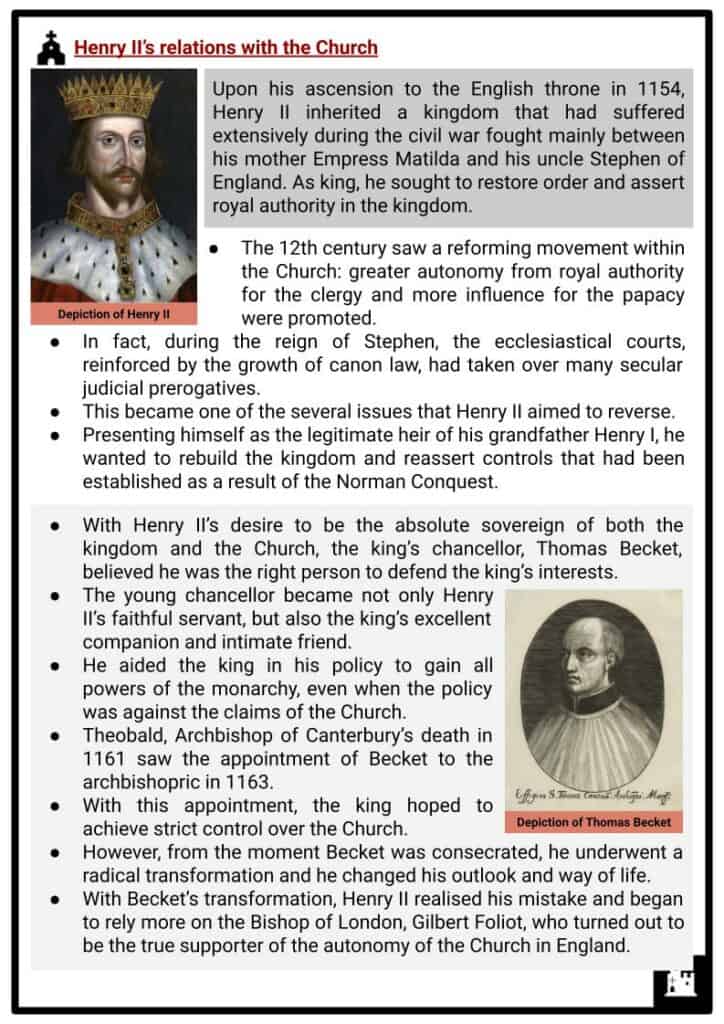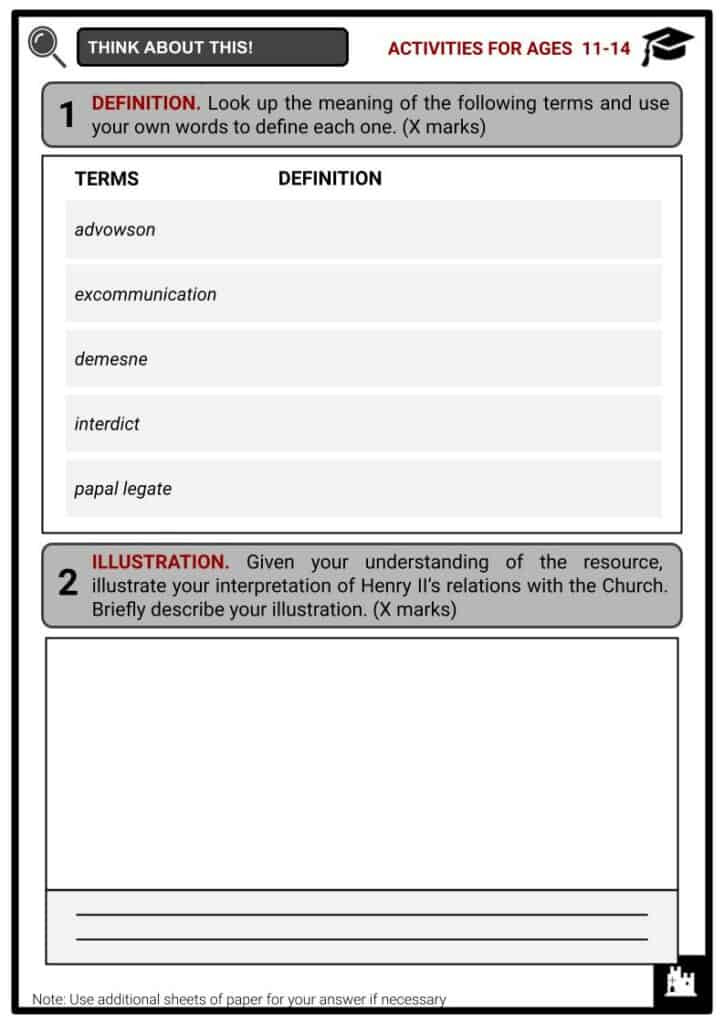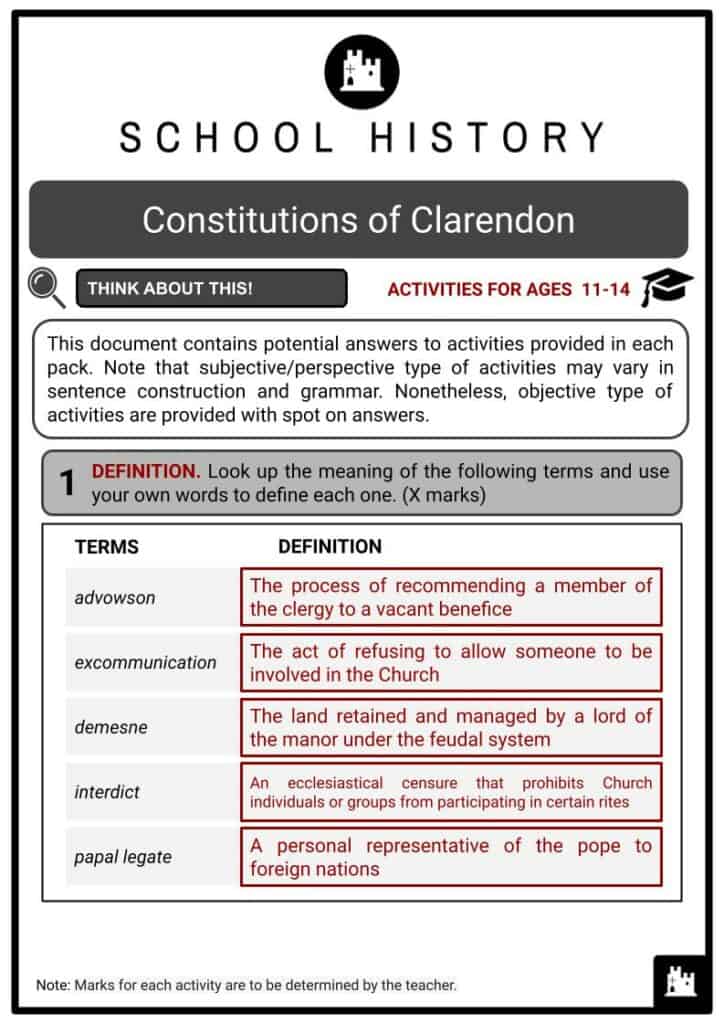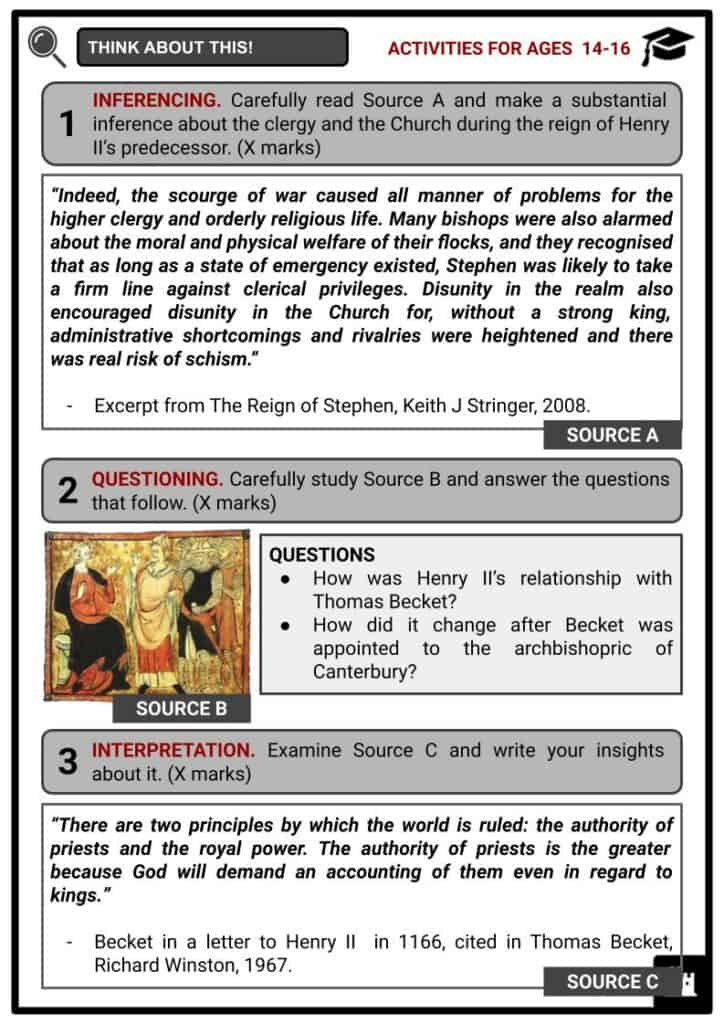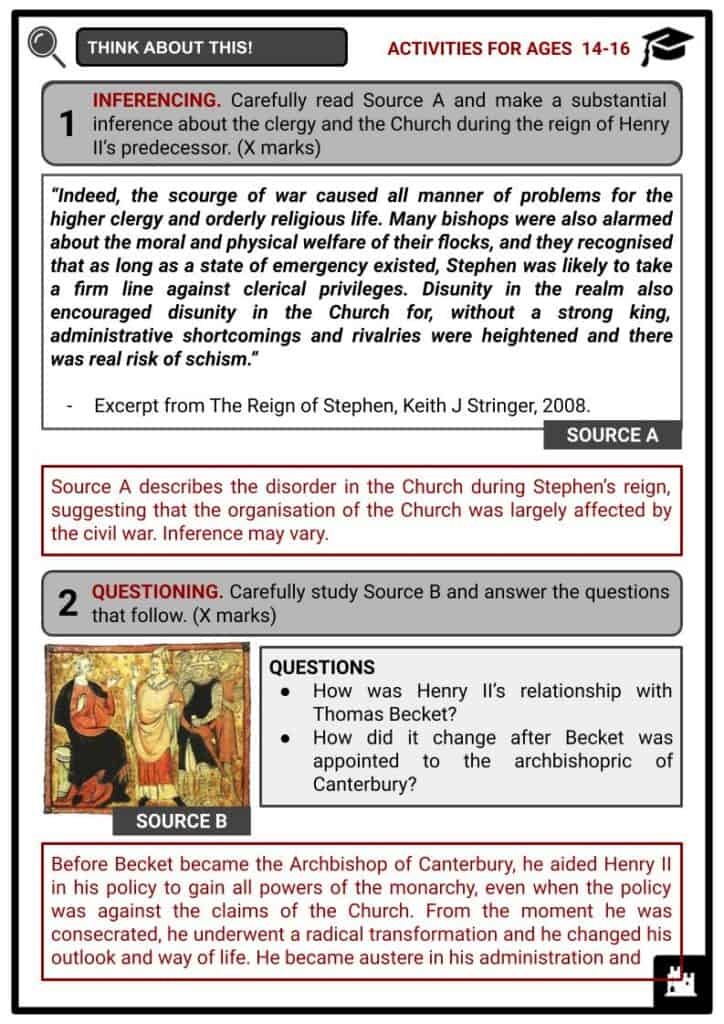Download Constitutions of Clarendon Worksheets
Do you want to save dozens of hours in time? Get your evenings and weekends back? Be able to teach about Constitutions of Clarendon to your students?
Our worksheet bundle includes a fact file and printable worksheets and student activities. Perfect for both the classroom and homeschooling!
Summary
- Henry II’s relations with the Church
- Council of Clarendon
- Exile and murder of Thomas Becket
Key Facts And Information
Let’s know more about Constitutions of Clarendon!
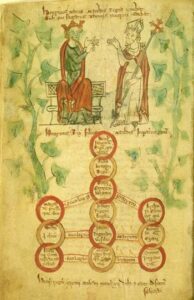
In line with his desire to assert his royal authority over the state and the Church, Henry II of England enacted the Constitutions of Clarendon in 1164. The Constitutions of Clarendon were a set of legislative procedures that laid out the extent of papal influence in England and the degree to which the clergy were subservient to the Crown and English legal custom. Whilst they were reluctantly assented by the English prelates, the Archbishop of Canterbury later renounced them. Conflict between Henry II and the archbishop proved irreconcilable and ultimately led to the murder of the latter.
Henry II’s relations with the Church
- Upon his ascension to the English throne in 1154, Henry II inherited a kingdom that had suffered extensively during the civil war fought mainly between his mother Empress Matilda and his uncle Stephen of England. As king, he sought to restore order and assert royal authority in the kingdom.
- The 12th century saw a reforming movement within the Church: greater autonomy from royal authority for the clergy and more influence for the papacy were promoted.
- In fact, during the reign of Stephen, the ecclesiastical courts, reinforced by the growth of canon law, had taken over many secular judicial prerogatives.
- This became one of the several issues that Henry II aimed to reverse.
- Presenting himself as the legitimate heir of his grandfather Henry I, he wanted to rebuild the kingdom and reassert controls that had been established as a result of the Norman Conquest.
- With Henry II’s desire to be the absolute sovereign of both the kingdom and the Church, the king’s chancellor, Thomas Becket, believed he was the right person to defend the king’s interests.
- The young chancellor became not only Henry II’s faithful servant, but also the king’s excellent companion and intimate friend.
- He aided the king in his policy to gain all powers of the monarchy, even when the policy was against the claims of the Church.
- Theobald, Archbishop of Canterbury’s death in 1161 saw the appointment of Becket to the archbishopric in 1163.
- With this appointment, the king hoped to achieve strict control over the Church.
- However, from the moment Becket was consecrated, he underwent a radical transformation and he changed his outlook and way of life.
- With Becket’s transformation, Henry II realised his mistake and began to rely more on the Bishop of London, Gilbert Foliot, who turned out to be the true supporter of the autonomy of the Church in England.
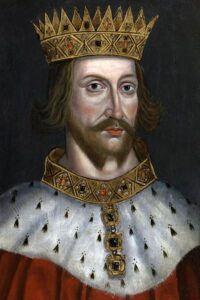
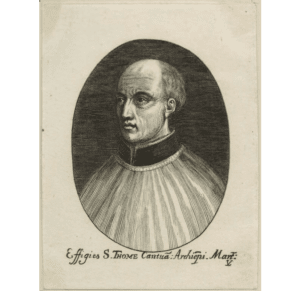
- Henry II was dismayed when Becket resigned his chancellorship to focus on the archbishopric.
- Becket began to implement the project he had prepared: to free the Church from the limitations that he himself had initially consented to. His objective was twofold:
- The complete abolition of all civil jurisdiction over the Church, with control not shared by the clergy, freedom of choice of its prelates
- The acquisition and security of property as an independent fund
- Henry II quickly understood the inevitable results of the archbishop’s attitude and summoned the clergy in Westminster in 1163.
- He called on the clergy to repeal all demands for civil legal exception and to recognise the equality of all individuals before the law.
- The high prelature was ready to accept the king’s requests. However, the archbishop firmly refused.
Council of Clarendon
- Henry II convened another assembly in Clarendon in Wiltshire in January 1164, during which he presented his demands exposed in 16 articles. This became known as the Constitutions of Clarendon. They defined the customs governing relations between church and state. Whilst the majority of them were simply a restatement of English custom and practice, several articles were contrary to canon law and two clauses caused controversy.
Articles of the Constitutions of Clarendon
- If a controversy concerning advowson and presentation of churches arise between laymen, or between laymen and clerks, or between clerks, it shall be treated of and terminated in the court of the lord king.
- Churches of the fee of the lord king cannot, unto all time, be given without his assent and concession.
- Clerks charged and accused of anything, being summoned by the Justice of the king, shall come into his court, about to respond there for what it seems to the king's court that he should respond there; and in the ecclesiastical court for what it seems he should respond there; so that the Justice of the king shall send to the court of the holy church to see in what manner the affair will there be carried on. And if the clerk shall be convicted, or shall confess, the church ought not to protect him further.
- It is not lawful for archbishops, bishops, and persons of the kingdom to go out of the kingdom without the permission of the lord king. And if it please the king and they go out, they shall give assurance that neither in going, nor in making a stay, nor in returning, will they seek the hurt or harm of king or kingdom.
- The excommunicated shall not give a pledge as a permanency, nor take an oath, but only a pledge and surety of presenting themselves before the tribunal of the church, that they may be absolved.
- Laymen ought not to be accused unless through reliable and legal accusers and witnesses in the presence of the bishop, in such wise that the archdean do not lose his right, nor any thing which he ought to have from it. And if those who are inculpated are such that no one wishes or dares to accuse them, the sheriff, being requested by the bishop, shall cause twelve lawful men of the neighbourhood or town to swear in the presence of the bishop that they will make manifest the truth in this matter, according to their conscience.
- No one who holds of the king in chief, and no one of his demesne servitors, shall be excommunicated, nor shall the lands of any one of them be placed under an interdict, unless first the lord king, if he be in the land, or his Justice, if he be without the kingdom, be asked to do justice concerning him: and in such way that what shall pertain to the king's court shall there be terminated; and with regard to that which concerns the ecclesiastical court, he shall be sent thither in order that it may there be treated of.
- Concerning appeals, if they shall arise, from the archdean they shall proceed to the bishop, from the bishop to the archbishop. And if the archbishop shall fail to render justice, they must come finally to the lord king, in order that by his command the controversy may be terminated in the court of the archbishop, so that it shall not proceed further without the consent of the lord king.
- If a quarrel arise between a clerk and a layman or between a layman and a clerk concerning any tenement which the clerk wishes to attach to the church property but the layman to a lay fee: by the inquest of twelve lawful men, through the judgment of the chief Justice of the king, it shall be determined, in the presence of the Justice himself, whether the tenement belongs to the church property, or to the lay fee. And if it be recognised as belonging to the church property, the case shall be pleaded in the ecclesiastical court; but if to the lay fee, unless both are holders from the same bishop or baron, the case shall be pleaded in the king's court. But if both vouch to warranty for that fee before the same bishop or baron, the case shall be pleaded in his court; in such way that, on account of the inquest made, he who was first in possession shall not lose his seisin, until, through the pleading, the case shall have been proven.
- Whoever shall belong to the city or castle or fortress or demesne manor of the lord king, if he be summoned by the archdean or bishop for any offense for which he ought to respond to them, and he be unwilling to answer their summonses, it is perfectly right to place him under the interdict; but he ought not to be excommunicated until the chief servitor of the lord king of that town shall be asked to compel him by law to answer the summonses. And if the servitor of the king be negligent in this matter, he himself shall be at the mercy of the lord king, and the bishop may thenceforth visit the man who was accused with ecclesiastical justice.
- Archbishops, bishops, and all persons of the kingdom who hold of the king in chief have their possessions of the lord king as a barony, and answer for them to the Justices and servitors of the king, and follow and perform all the customs and duties as regards the king; and, like other barons, they ought to be present with the barons at the judgments of the court of the lord king, until it comes to a judgment to loss of life or limb.
- When an archbishopric is vacant, or a bishopric, or an abbey, or a priory of the demesne of the king, it ought to be in his hand; and he ought to receive all the revenues and incomes from it, as demesne ones. And, when it comes to providing for the church, the lord king should summon the more important persons of the church, and, in the lord king's own chapel, the election ought to take place with the assent of the lord king and with the counsel of the persons of the kingdom whom he had called for this purpose. And there, before he is consecrated, the person elected shall do homage and fealty to the lord king as to his liege lord, for his life and his members and his earthly honours, saving his order.
- If any of the nobles of the kingdom shall have dispossessed an archbishop or bishop or archdean, the lord king should compel them personally or through their families to do justice. And if by chance any one shall have dispossessed the lord king of his right, the archbishops and bishops and archdeans ought to compel him to render satisfaction to the lord king.
- A church or cemetery shall not, contrary to the king's justice, detain the chattels of those who are under penalty of forfeiture to the king, for they (the chattels) are the king's, whether they are found within the churches or without them.
- Pleas concerning debts which are due through the giving of a bond, or without the giving of a bond, shall be in the jurisdiction of the king.
- The sons of rustics may not be ordained without the consent of the lord on whose land they are known to have been born.
- After Henry II presented the articles, the English prelates, led by Becket, reluctantly assented to the Constitutions of Clarendon.
- However, when Pope Alexander III condemned the codification, Becket renounced his agreement. This meant war between the archbishop and the king.
Exile and murder of Thomas Becket
- Henry II tried to get rid of Becket by judicial means and summoned him before the great Council of Northampton in October 1164, to answer the accusations that he abused his position as chancellor and was opposed to royal authority.
- Realising the danger he was facing, Becket voluntarily went into exile in November and took refuge in France.
- Pope Alexander III received some envoys of Henry II who asked, in his name, to take action against Becket. The pope refused to help the king and lent his support to the archbishop.
- Henry II persecuted Becket, creating a series of decrees against the archbishop that extended to his friends and supporters.
- Meanwhile, Louis VII of France welcomed Becket to his court and offered him protection.
- Becket had spent six years in exile in France when Henry II forced him to return.
- He maintained his position and threatened the king, bishops and the kingdom with excommunication and interdict.
- In 1167, papal legates were sent to England to mediate. Persistent in his principles, Becket agreed with the legates and submitted to the conditions of the king as long as he was allowed to maintain his power.
- In 1169, the king and the archbishop met but failed to reconcile.
- The king then put out additions to the Constitutions of Clarendon and had his eldest son, Henry the Young King, crowned as co-regent by the Archbishop of York, Becket’s old rival.
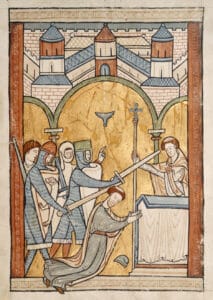
- Becket’s firmness was about to result in the excommunication of the king in 1170.
- Tension between Henry II and Becket proved irreconcilable. In December 1170, Becket returned to England when the king allowed him to continue his ministry in the kingdom.
- On 29 December 1170, four Anglo-Norman knights, acting on their own, planned to confront the archbishop on behalf of the king.
- The knights forced their way into Canterbury Cathedral and cut the archbishop, who refused to be arrested inside the church, with their swords.
- Becket’s murder shocked Europe. This martyrdom forced Henry II to lessen his attack on the clergy, but the Constitutions of Clarendon largely survived. Whilst papal legates found Henry II innocent of Becket’s death, he had to carry out public penance before the tomb of the archbishop in 1174.
Image Sources
- https://upload.wikimedia.org/wikipedia/commons/1/10/King_Henry_II_England_and_Thomas_Becket.jpg
- https://upload.wikimedia.org/wikipedia/commons/thumb/c/c4/King_Henry_II_from_NPG_%28mirrored%2C_cropped_and_retouched%29.jpg/400px-King_Henry_II_from_NPG_%28mirrored%2C_cropped_and_retouched%29.jpg
- https://www.npg.org.uk/collections/search/portrait/mw124084/Thomas-Becket?LinkID=mp64402&role=sit&rNo=3
- https://upload.wikimedia.org/wikipedia/commons/4/43/Thomas_Becket_Murder.JPG

